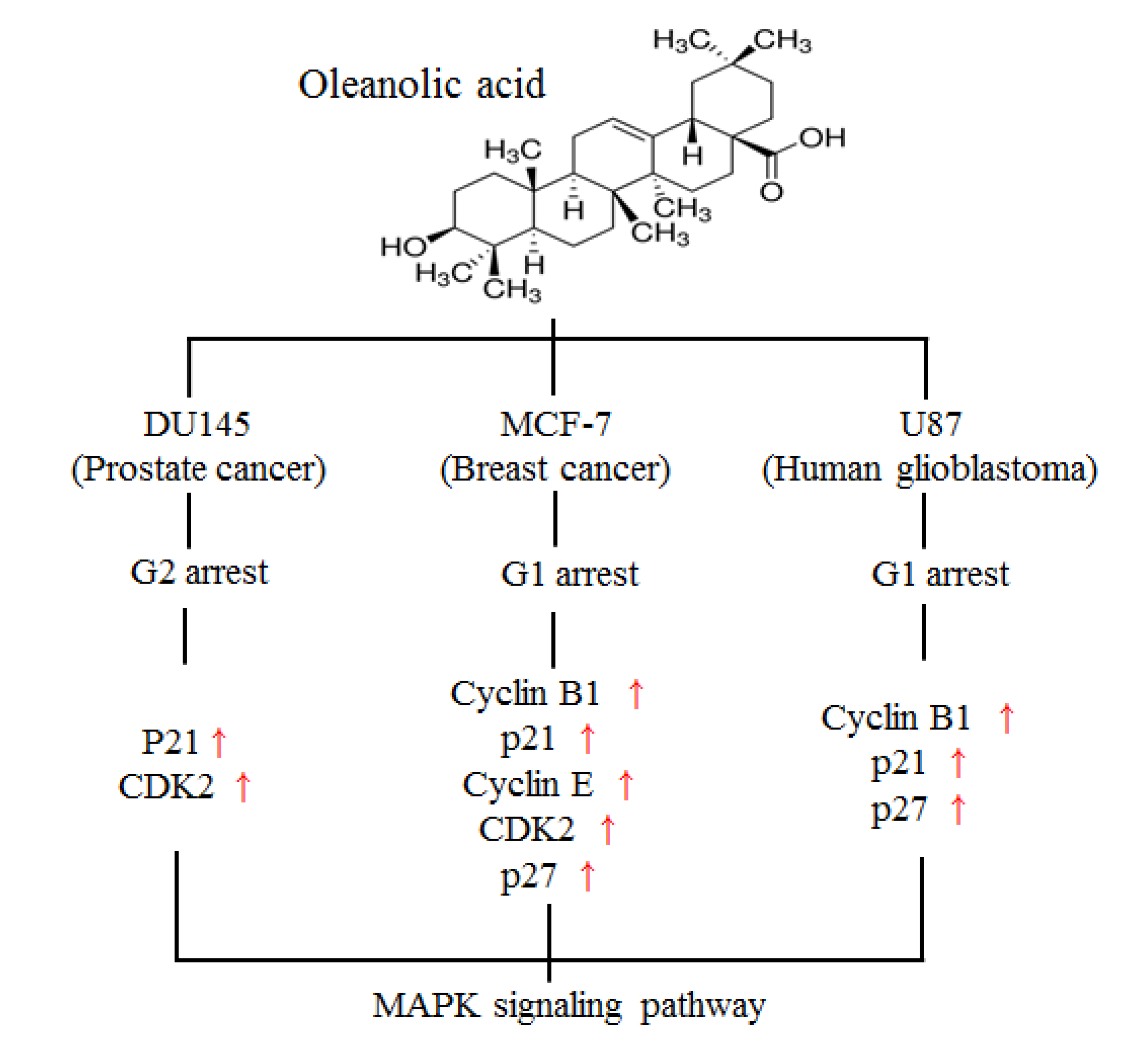We evaluated oleanolic acid (OA)-induced anti-cancer activity, apoptotic mechanism, cell cycle status, and MAPK kinase signaling in DU145 (prostate cancer), MCF-7 (breast cancer), and U87 (human glioblastoma) cells. The IC50 values for OA-induced cytotoxicity were 112.57 in DU145, 132.29 in MCF-7, and 163.60 in U87 cells, respectively. OA (at 100 µg/mL) increased the number of apoptotic cells to 27.0% in DU145, 27.0% in MCF-7, and 15.7% in U87 cells, when compared to control cells. This enhanced apoptosis was due to increases in p53, cytochrome c, and Bax expression. OA-treated DU145 cells were arrested in G2 because of the activation of p-ERK and p21, and the decrease in cyclin B1 and cyclin E expression. Furthermore, OA-treated MCF-7 cells were arrested in G1 owing to the activation of p-JNK, p-ERK, p21, and p27, and the decrease in p-AKT, cyclin E, and CDK2. U87 cells also exhibited G1 phase arrest caused by the increase in p-ERK, p-JNK, p21, and p27, and the decrease in CDK2. Thus, OA arrests the cell cycle in different phases, and increases apoptosis in cancer cells. These results suggest that OA may alter the expression of cell cycle regulatory proteins in a cancer type-dependent manner.

